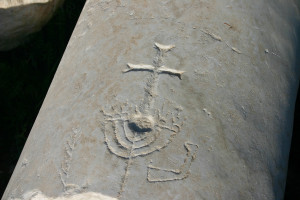 The Tosefta presents a list of regulations put together from previously existing statements, reflecting tannaitic steps to distance Jews from the early Christians, who were increasingly regarded as members of a separate religious community.
The Tosefta presents a list of regulations put together from previously existing statements, reflecting tannaitic steps to distance Jews from the early Christians, who were increasingly regarded as members of a separate religious community.
If meat is found in the hand of a non-Jew, it is permitted to derive benefit from it. [If it is found] in the hand of a min, 154 it is forbidden to benefit from it. That which comes forth from the house of a min, indeed it is the meat of sacrifices to the dead (idolatrous worship), for they said: The slaughtering of a min is idolatry; their bread is the bread of a Samaritan; their wine is the wine of [idolatrous] libation; their fruits are untithed; their books are the books of diviners, and their children are mamzerim. 155 We do not take from them, not do we give to them, and we do not teach their sons a craft. We are not healed by them, neither healing of property nor healing of life. 156
[154] “Heretic,” referring here to a Jewish Christian.
[155] Progeny of a forbidden marriage, such as that of adultery or incest.
[156] By “healing of property,” the text refers to cases in which there is no mortal danger. “healing of life” refers to cases in which a life is at stake.